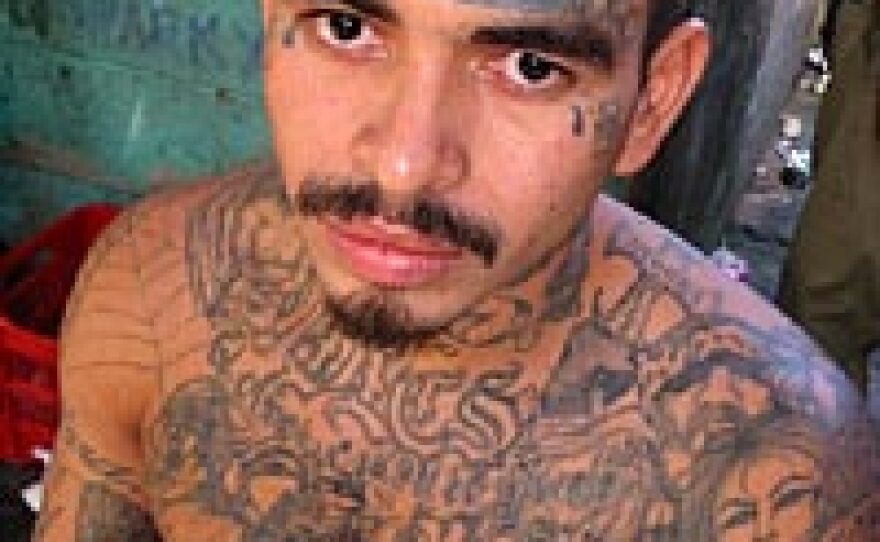Federal authorities are conducting a nationwide crackdown against a Latino street gang involved in murder, drug smuggling and human trafficking. More 100 members of the gang — known as Mara Salvatrucha, or MS-13 — have been arrested in six U.S. cities, and it's believed there are more than 50,000 MS-13 members in the United States alone.
NPR's Mandalit del Barco profiles the rise of the MS-13, from its roots in Honduras and El Salvador to its broad reach across Central America, Mexico and the United States.
Honduran President Ricardo Maduro still has bitter memories of how his own son was kidnapped and killed by gang members in 1997, and has ordered a "zero tolerance" crackdown on gangs in his country. A law passed by the Honduran legislature makes illicit association a crime — in other words, anyone looking like a gang member is arrested as a suspect.
El Salvador has a similar law, called the "Mano Dura," or Firm Hand, and now the "Super Mano Dura." But some human rights activists and even a former Honduran police commissioner, Maria Luisa Borjas, criticize the crackdown tactics as extreme and repressive.
"They go to the poorest barrios without arrest warrants," Borjas says. "They grab the first three or four young people they find wandering around and they present them as the suspects. They blame gang members for every single crime, and without justification."
But more Central Americans say they've been terrorized by the gangs. Honduran National Police Minister Oscar Alvarez calls gangbangers killing machines, "cutting people in pieces, raping women, killing people for fun. They might be youngsters, they might be poor. But these youngsters are monsters."
And some of the worst of those "monsters" — members of the Mara Salvatrucha — were created in Los Angeles, Calif. Immigrants from El Salvador living in the city's Pico Union area created the gang. In an effort to stem the violence, U.S. officials began deporting suspected gang members back to Central America in the 1990s.
The Mara Salvatrucha took root in Central America. The overcrowded prison in Quezaltepeque in northern El Salvador is a warehouse for Salvadoran and deported U.S. members of the gang, and the murals on the walls and the head-to-toe tattoos on some members glorify the Los Angeles gang life.
"The cycle seems without end," del Barco says. "Children of Central America's bloody wars immigrated to the U.S., where they became violent gang members, then deported back to Central America to begin another generation."
Copyright 2022 NPR. To see more, visit https://www.npr.org. 9(MDAzMjM2NDYzMDEyMzc1Njk5NjAxNzY3OQ001))







